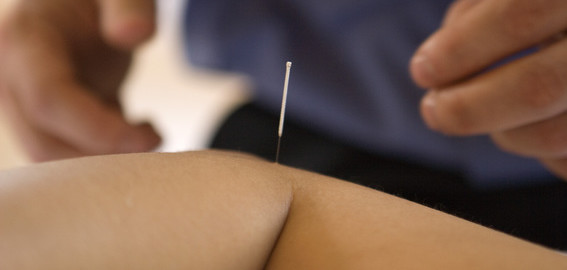The treatment of chronic pain has always been a major focus of modern medicine. While acute pain can and is often treated with drugs, chronic pain presents other challenges. For example, long-term use of certain pain-management drugs can be damaging to the liver and kidneys, making treatment a challenge.
Experts do agree that one of the best ways of living with chronic pain is to adopt a multi-modal approach. That means blending together a series of therapies and treatment modalities to get the best results faster. One of the modalities with a long tradition is the use of acupuncture for chronic pain.
A recent paper – which looked into earlier studies involving acupuncture and pain — published by the by the North Carolina Medical Journal might change that. According to the authors of this study, acupuncture has been shown more times than not to provide relief in the four major areas of pain: chronic headaches, chronic shoulder pain, chronic back and neck pain, and osteoarthritis.
The Major Factors
One of the factors affecting the outcome of studies regarding acupuncture for chronic pain is the “sham acupuncture” control group. Sham acupuncture is used to refer to the application of needles at a superficial level and at points that have no known therapeutic value (instead of applying the needles to recognized energy points).
When researchers compared the results of using traditional acupuncture and sham acupuncture, they noticed that in many studies (but not all studies), people in both groups experienced an improvement in their pain level and frequency. This raises an interesting question for researchers: is the simple action of using needles enough to alleviate pain or is there a placebo effect in place when using acupuncture?
Researchers believe the answer might lie somewhere in between, especially considering the long tradition of acupuncture being used effectively to treat a number of conditions.
Why Try Acupuncture
The evidence is clear and compelling that acupuncture is very effective for treating many forms of chronic pain, even if the question of how much of this effectiveness is due to placebo effects has not yet been settled. Another factor to consider is acupuncture’s low incidence of side effects. The study notes that significant side effects occur at “an incidence of 1 or 2 events per 34,407 treatments.” When compared to the side effects other forms of treatment carry, acupuncture can be considered to be a relatively very safe option.
A Final Word
While acupuncture alone might not be enough to control severe chronic pain, combining it with other forms of therapy could provide excellent results – and in more ways than one. For example, research shows that patients taking opioids for pain experience fewer side effects (which include nausea, sedation and dizziness) from the drug when using acupuncture at the same time.
In the end, researchers believe that when faced between the choice of using acupuncture or no treatment at all to address chronic pain, acupuncture can provide a number of benefits. However, more research is needed to better establish acupuncture’s place in the treatment of chronic pain.




